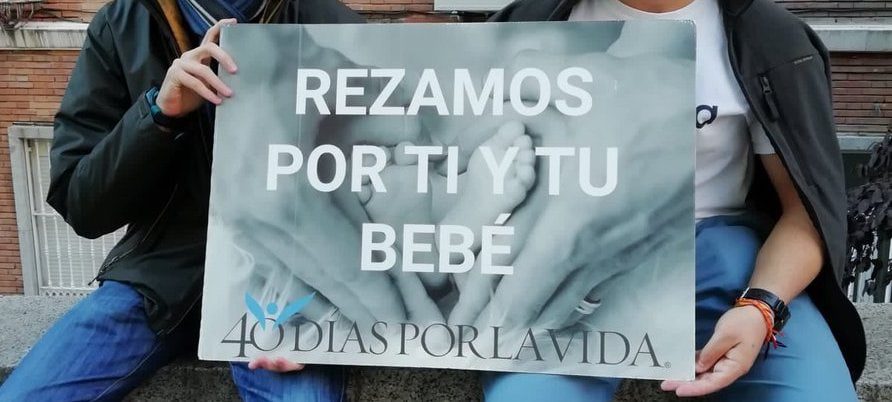
Spain is expected to approve legislation that could criminalize praying or offering pro-life information outside of abortion clinics.
El Debate reported that the proposed law will likely go before the country’s Congress of Deputies in January where it is expected to pass easily, as all but the center-right Popular Party and the far-right party VOX have shown their support for the proposal.
The draft adds to Spain’s penal code, criminalizing anyone who impedes “the exercise of the right to the voluntary interruption of pregnancy, harasses a woman by means of annoying, offensive, intimidating or coercive acts which impair her freedom.”
The law also applies to the “harassment” of health care workers involved in abortions.
The proposed punishment for such a crime is three months to a year in prison, or up to eighty days of community service, and possibly being prohibited from approaching certain places for up to three years.
Almost 100,000 abortions were performed in Spain in 2019, but the pro-life movement has been active in outreach to women considering abortion by providing information and ultrasounds–through mobile clinics–near abortion facilities. Since 2019, the pro-life community in Spain has also participated in Forty Days for Life, Nayeli Rodriguez, coordinator in Madrid, told the European Conservative. During the six-week campaign, which started in Texas and has extended globally, peaceful prayer vigils are held outside abortion clinics. According to Rodriguez, the effects of the proposed law could already be felt in the police presence during the last vigil.
“Every day, the government sent police officers to scare us,” she said.
According to Rodriguez, the law is based on a study conducted by the Association of Accredited Clinics for the Interruption of Pregnancy, which claims that hundreds of women a year suffer “harassment” at the doors of abortion clinics in Spain.
El Debate also reports that the law was purposely fast-tracked by the government, a coalition of the center-left Spanish Socialist Workers Party (PSOE) and the neo-communist party Unidas Podemos, to avoid additional debates fueled by a public comment period and input from various filter organs. The PSOE and Unidas Podemos control the two congressional commissions—justice and experts—that the draft must pass through before going to a final vote in the Congress of Deputies. It is expected to be voted on by the Congress of Deputies in January and then go to the Senate, where it will also likely be approved.
This is not the government’s only move against the pro-life movement. At the end of September, Irene Montero, the minister of equality, announced she was preparing changes to the country’s abortion law, including requiring doctors who consciously object to performing abortions to register themselves as objectors.
The country’s current law, which permits abortion on demand up to the fourteenth week of pregnancy, stipulates that medical professional can only refuse to perform abortions on conscience grounds if they have previously notified their conscientious objection. Nevertheless, the government has never established a nation-wide mechanism to comply with this part of the law. Only the autonomous community of Navarra has created a registry where conscientious objectors have to list themselves before they can exercise their right to refuse to perform abortions. The move was challenged in the regional courts but finally permitted.
Abortion is offered in the public health system, but very few doctors want to perform the procedure. According to Spain’s Ministry of Health, 85% of abortions are performed in private clinics that have service agreements with the state.
